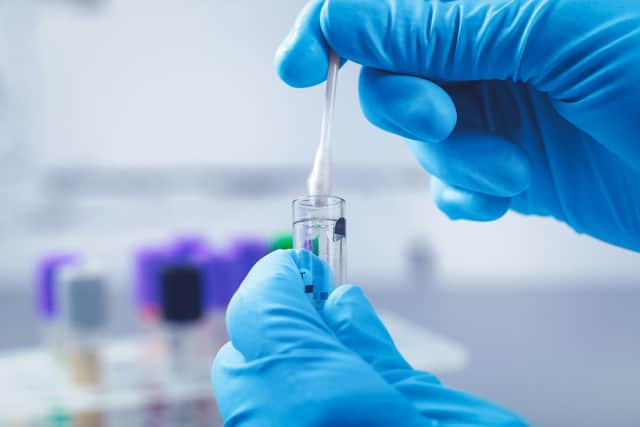Sexual health: Number of people catching STIs in Bucks revealed as ‘super gonorrhoea’ spreads
and live on Freeview channel 276
Health chiefs are warning people to take extra precautions after a spate of cases of ‘super gonorrhoea’.
There have been four cases of Neisseria gonorrhoeae, a version of the sexually transmitted infection (STI) that is resistant to antibiotics, identified across England.
Advertisement
Hide AdAdvertisement
Hide AdThe UK Health Security Agency this month revealed that a woman in her 20s in London and a heterosexual couple in their 20s based in the Midlands were the latest to be diagnosed.


The first identified case was a heterosexual man in his early 20s, who caught the infection in London in November.
Cases of other STIs are also on the rise, health bosses have warned.
How many people have had super gonorrhoea in Bucks
Fortunately only a handful of the antibiotic-resistant Neisseria gonorrhoeae (also known as super gonorrhoea) have so far been identified in London and the Midlands. It is not known which local authority areas these cases relate to.
Advertisement
Hide AdAdvertisement
Hide AdBut STIs, including the more common version of gonorrhoea, are not uncommon in Bucks.
According to the most recent available data sourced from Public Health England (now replaced by the UK Health Security Agency), 228 people were diagnosed with gonorrhoea in 2020.
This is a rate of 41.7 cases per 100,000 people.
There have also been numerous cases of other STIs like genital warts and syphilis.
Figures show there were 709 diagnoses of Chlamydia, 299 diagnoses of genital warts, 168 diagnoses of genital herpes and 32 diagnoses of syphilis.
Advertisement
Hide AdAdvertisement
Hide AdOverall, there were 1,940 STI diagnoses in 2020. This is a rate of 354.6 new infections per 100,000 people.
In the South East region there were 21,162 cases of Chlamydia, 4,327 cases of genital warts, 2,954 cases of genital herpes and 783 diagnoses of syphilis.
What are the symptoms of super gonorrhoea and how can people avoid catching it?
Health experts are urging people in Bucks to use protection and to regularly get tested to limit the risk of catching the infection or any other STI.
Advertisement
Hide AdAdvertisement
Hide AdDr Katy Sinka, STI section head at the UK Health Security Agency (UKHSA), said: “After a couple of years without any cases of this hard-to-treat form of gonorrhoea, we have now seen four cases in the last two months.
“It’s too soon to say whether this will be the start of a longer-term trend, but we do know that STIs are on the rise in general.
“Getting an STI isn’t as simple as taking some medicine and moving on with your life – if not properly treated, they can have long term impacts on your and your partner’s health.
“Adding antibiotic resistance into the mix makes the impact on your life even greater.
Advertisement
Hide AdAdvertisement
Hide Ad“There are simple steps you can take to reduce your risk of gonorrhoea and other STIs.
"Use condoms consistently and correctly with all new or casual partners, test regularly for STIs and if you have any symptoms such as unusual discharge, don’t have sex until you are tested.”